Gardening with Greta: August
August 2, 2020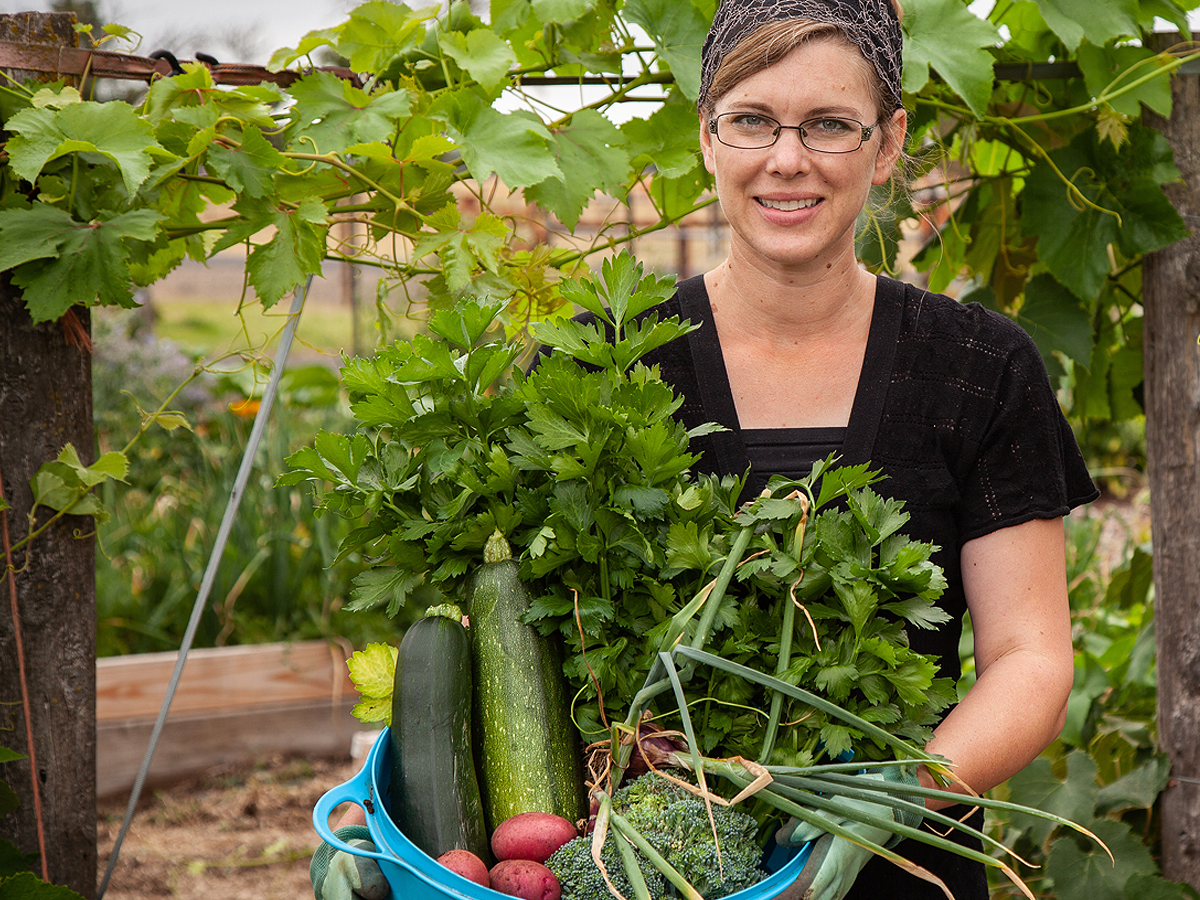
The Pacific Northwest is a wonderful region to grow a personal garden. This month, Greta’s patch of earth is seeing some harvesting, some planting, and some tending as her family begins to prepare for the oncoming winter months.
Time to Harvest Potatoes
Sure, you can let your potatoes grow into September and even October when they’re planted in the ground. But with no-dig potatoes, August is harvest time. Check out how Greta planted her no-dig potatoes back in late spring.
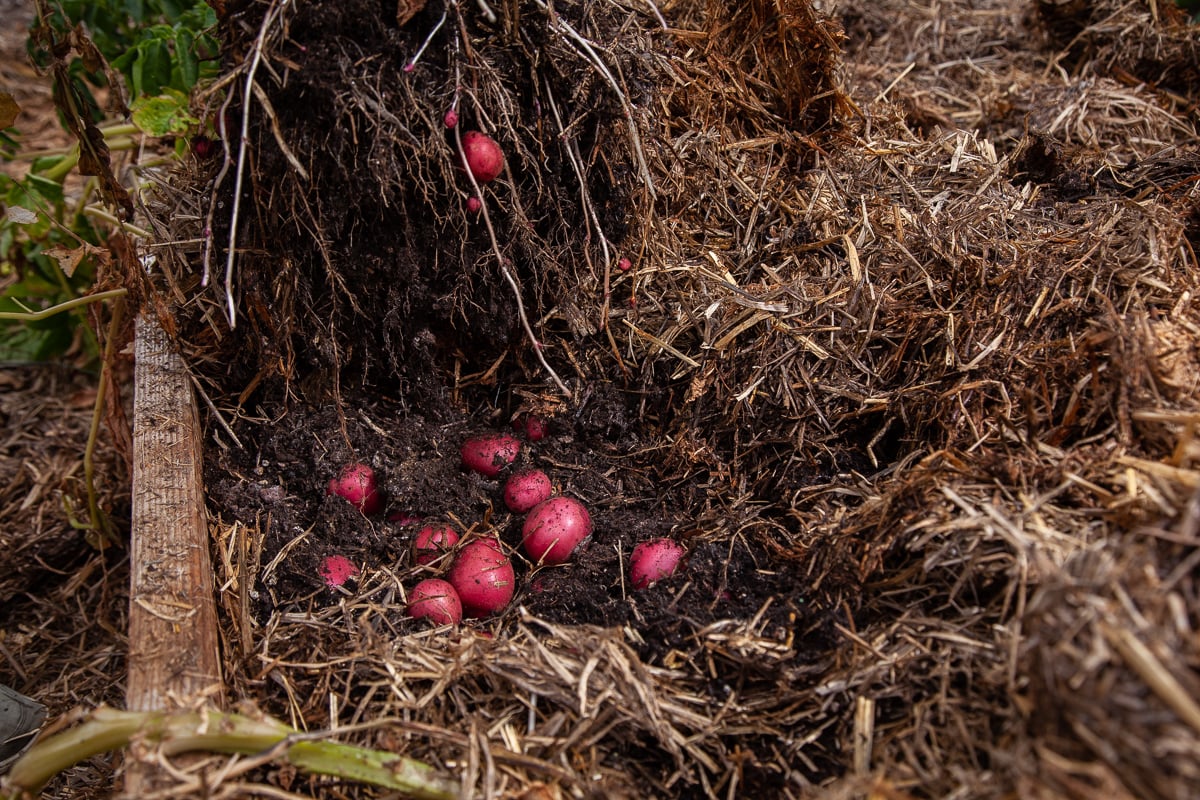
Because of the no-dig potatoes, harvest is very easy. She and the family simply move the straw out of the way and carefully remove the potatoes. If you’ve planed yours in the ground, give them another month before carefully loosening the soil to harvest.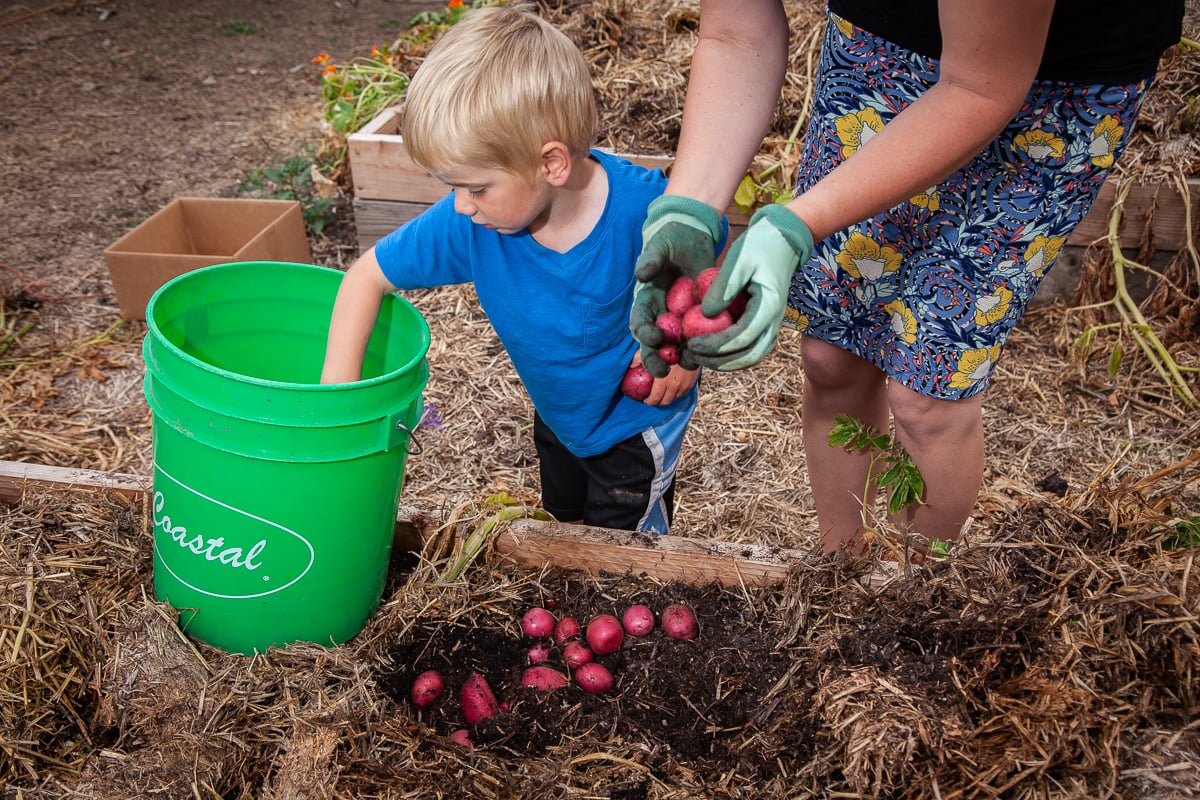
With a crop like this, Greta’s family has more than enough potatoes to last throughout the winter. But that requires properly curing and storing them for later. Here’s how she does it.
Carefully cure your potatoes. Lay them out on the soil on a dry day and let them sit in the sun for a few hours. Then, move them into a dark part of your garage or shed. They need to stay out of the light for five full days. If any light gets to them, they’ll turn green.
Store your potatoes all winter in a burlap sack, paper bag, or box. Whatever you use to hold them, be sure there is some airflow, and use straw to give your potatoes cushion to avoid bruising. Greta’s family stores their potatoes in burlap sacks and boxes.
Save smaller potatoes for springtime seeds. Look for any that are about the size of an egg. Brush off the dirt, inspect for rot, and then wrap them individually in newspaper. Store them in a box and cover the whole thing with a burlap sack. They’ll be ready for you to plant in the spring.
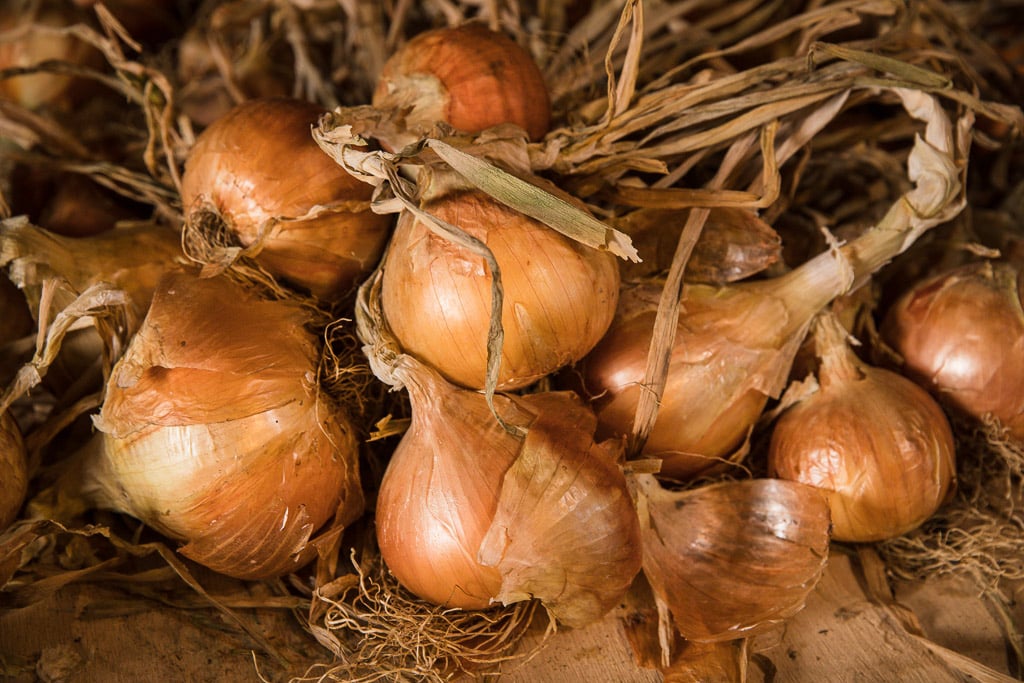
Harvesting Onions
Greta and her family are harvesting onions this month. Check out our article Harvesting and Curing Your Onions to prep yours for winter and beyond.
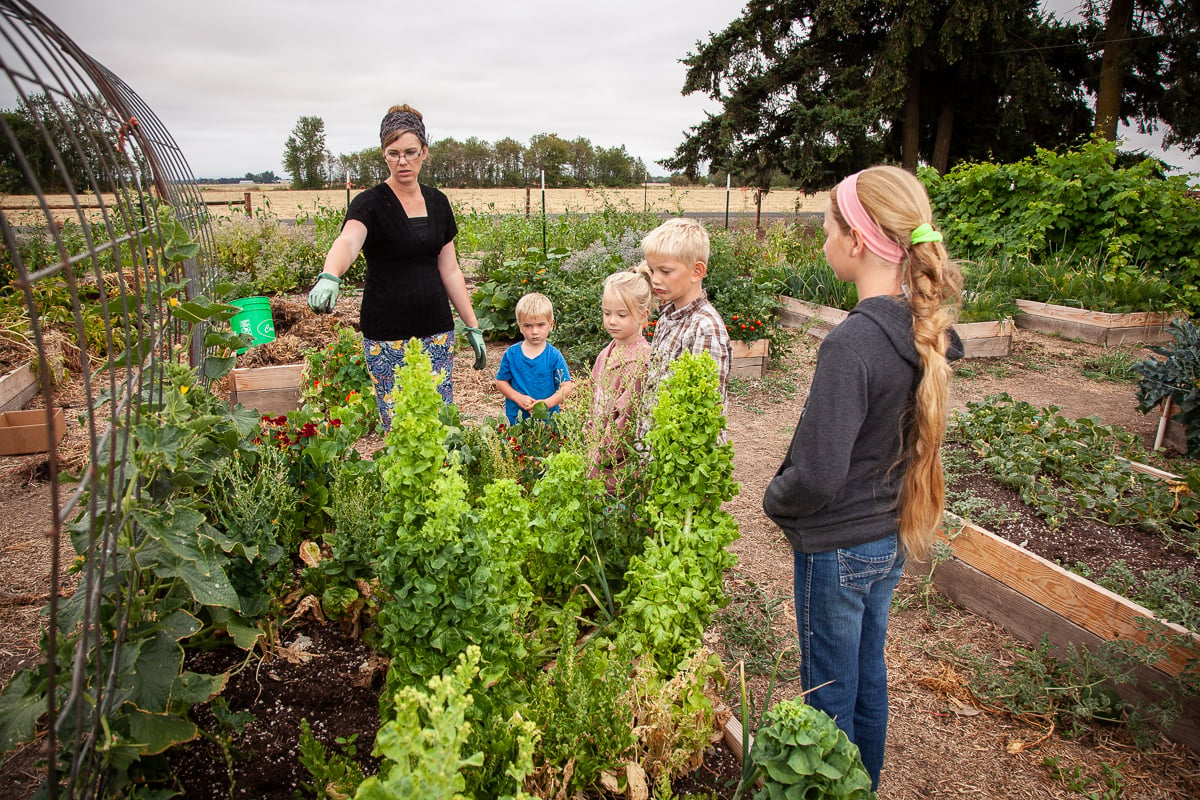
Growing New Crops into Fall & Winter
Preparing for the change in seasons isn’t limited to harvesting. Greta is also planting new crops. These include broccoli, cauliflower, and green beans. Living in the valley has its advantages, including far fewer sub-freezing days and evenings. Because these crops can withstand temperatures down to 10-15º F, she’ll be harvesting vegetables in winter.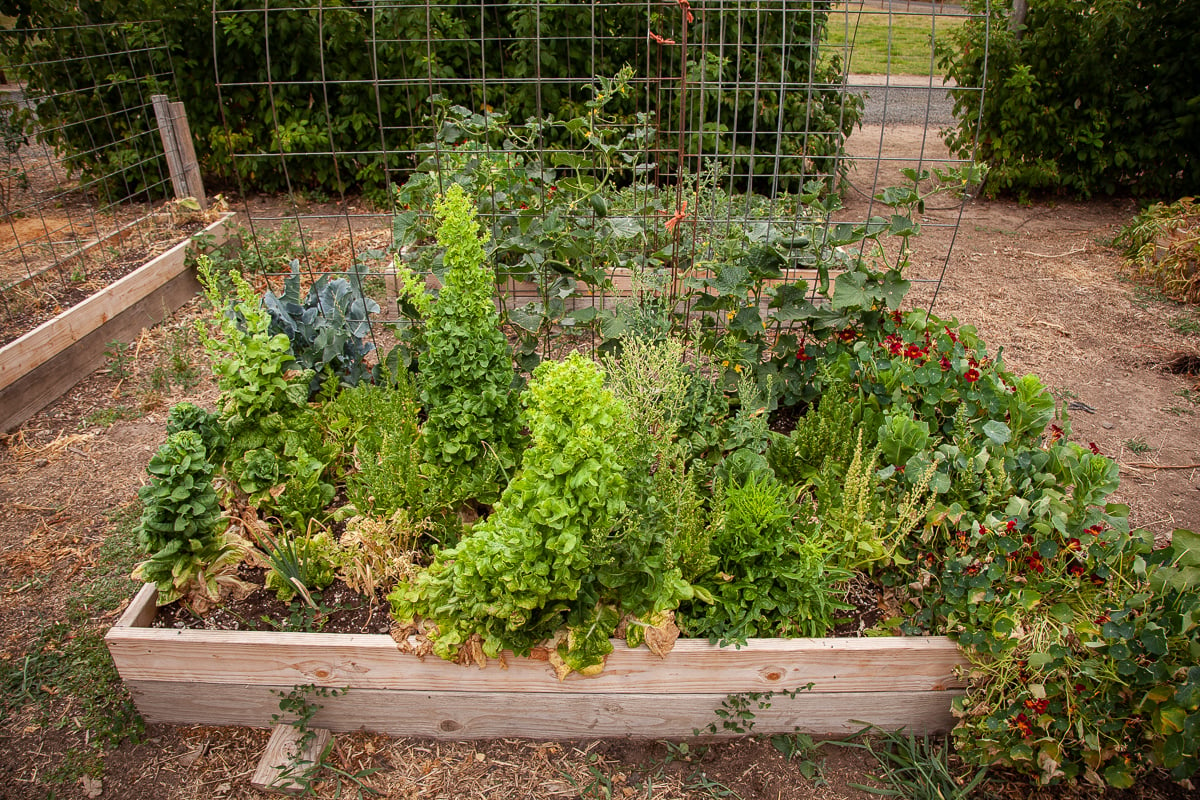
Start by removing the non-producing vegetation from your beds. Greta and her family clean out the old bed of lettuce and anything else that is no longer producing. This will make room for fall crops. 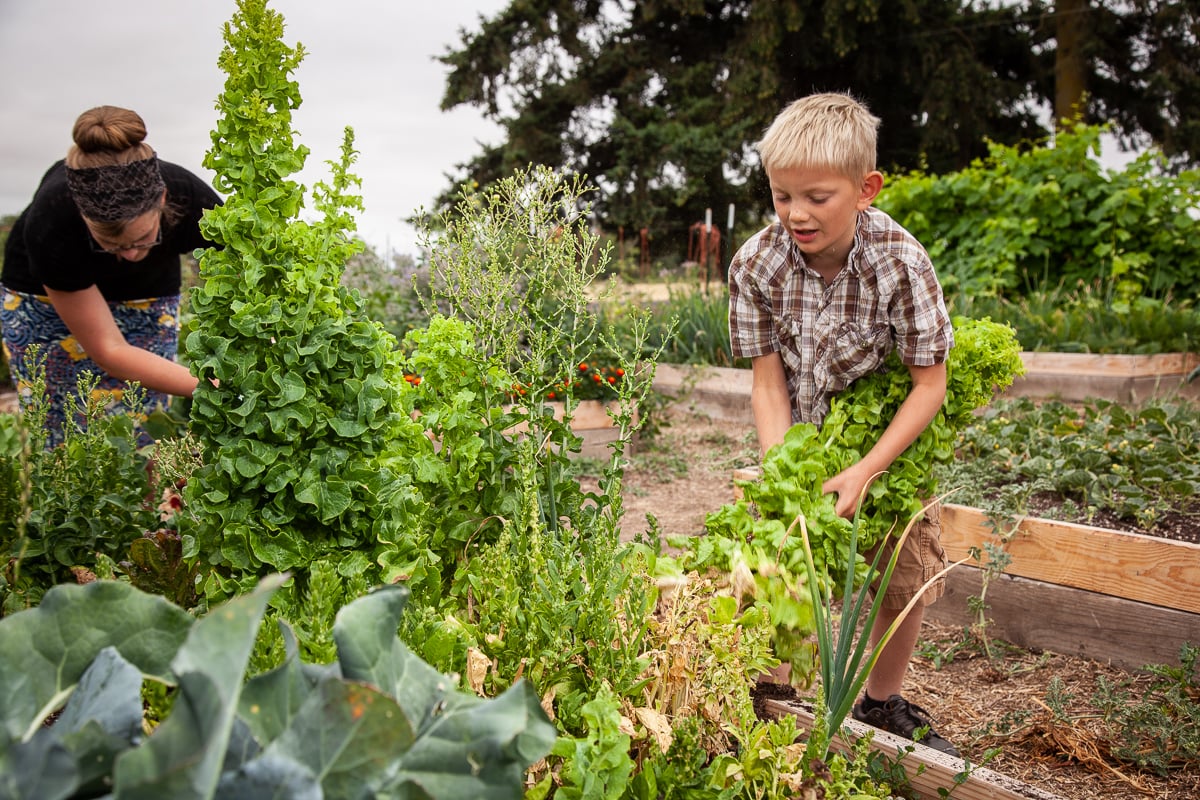
Greta’s chickens love all those greens.
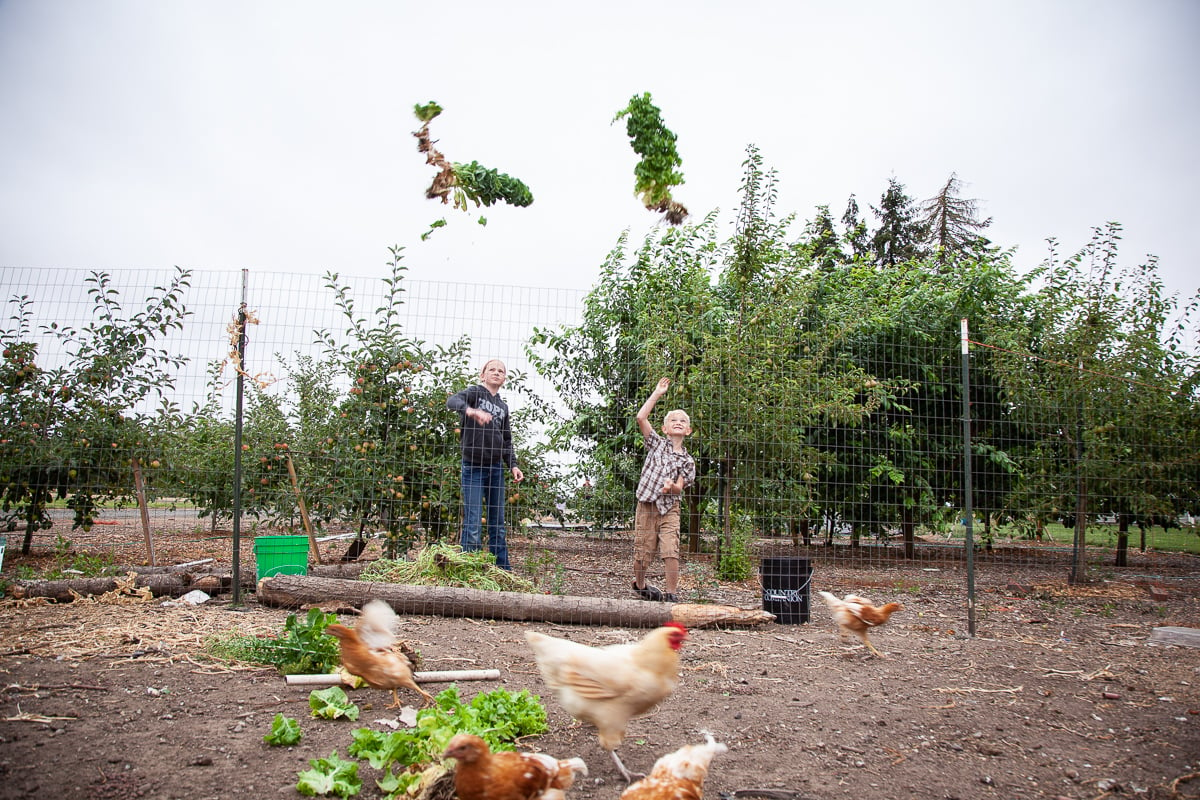
Some of the vegetation Greta pulls from the garden os added to the compost pile, which will add growing-power to next year’s raised beds.
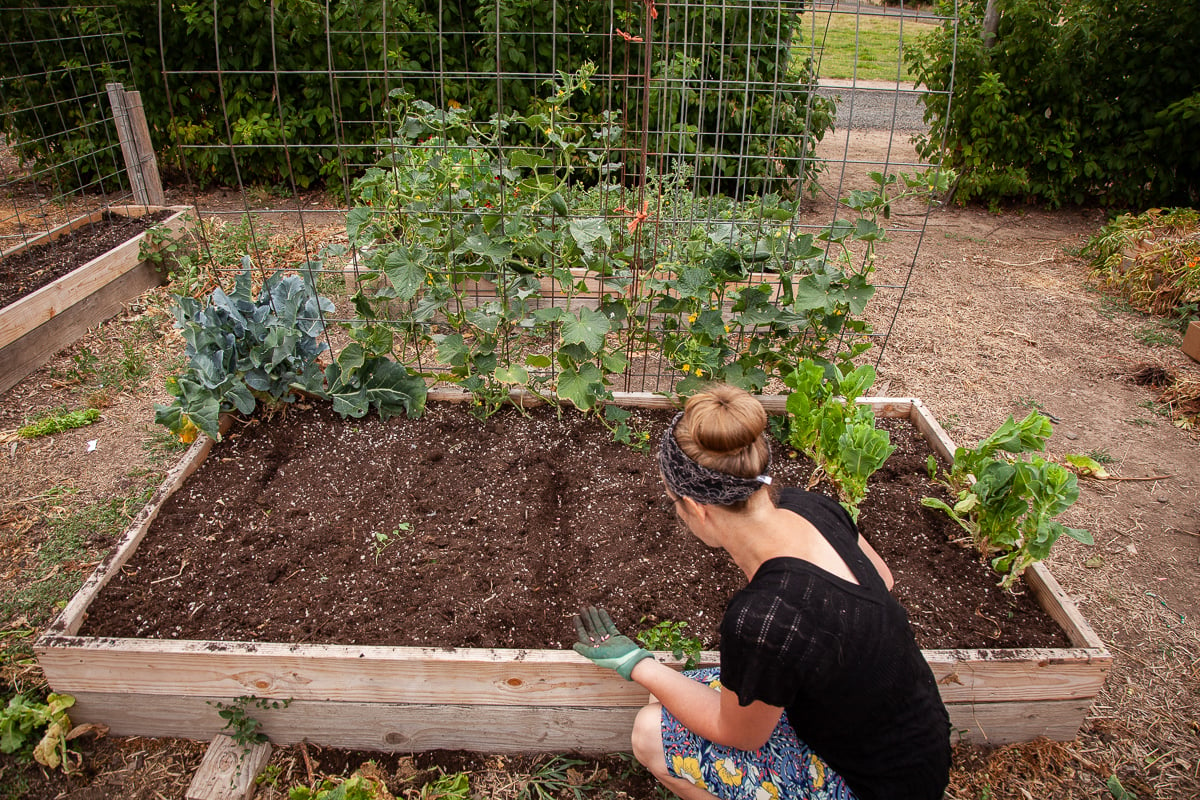
To plant your winter crops, choose your location carefully. Find the warmest location in your yard or on your property. Look for places that get a lot of sun and face the south. Avoid areas exposed to the wind or easily frost (at the bottom of a hill).
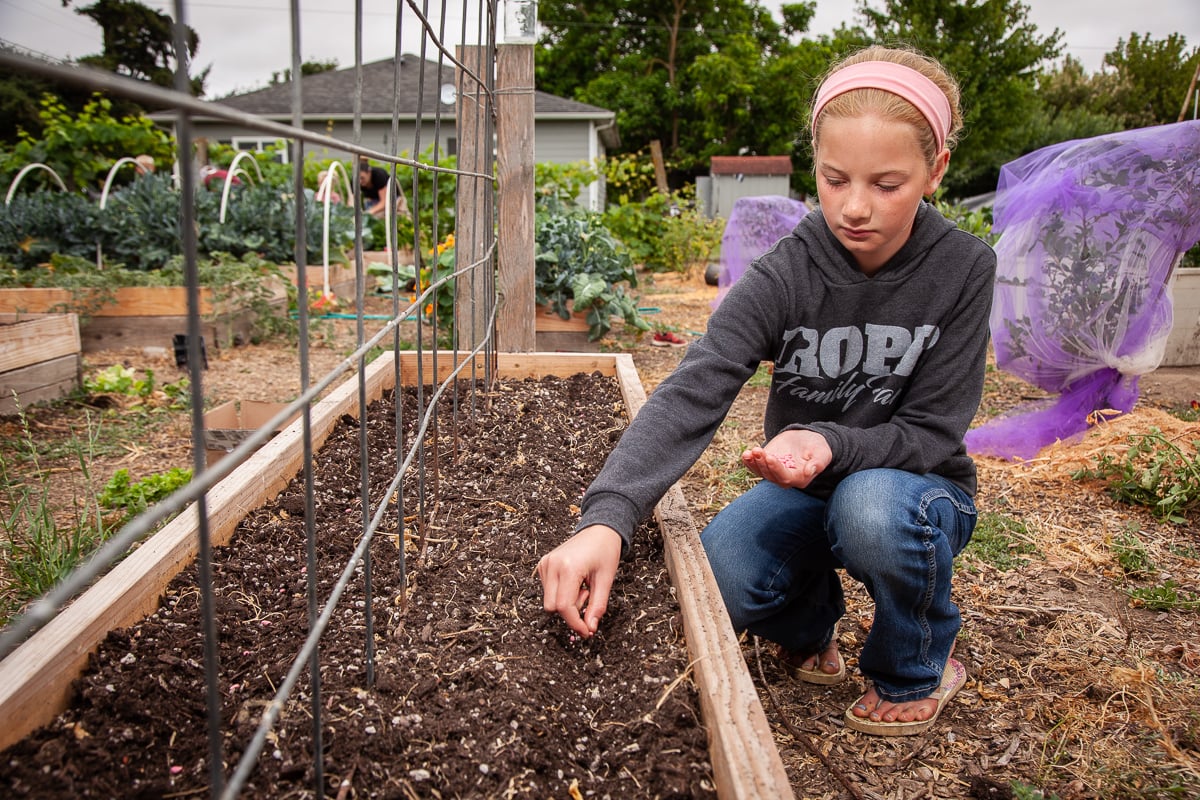
Be sure your soil has plenty of drainage. Raised beds work best for late-season crops. To add nutrients to the soil, Greta is using some compost and natural fertilizer.
Remember, the colder it gets, the slower things will grow. Keep track of when your vegetables should be ready to harvest, allowing time for colder, shorter days.
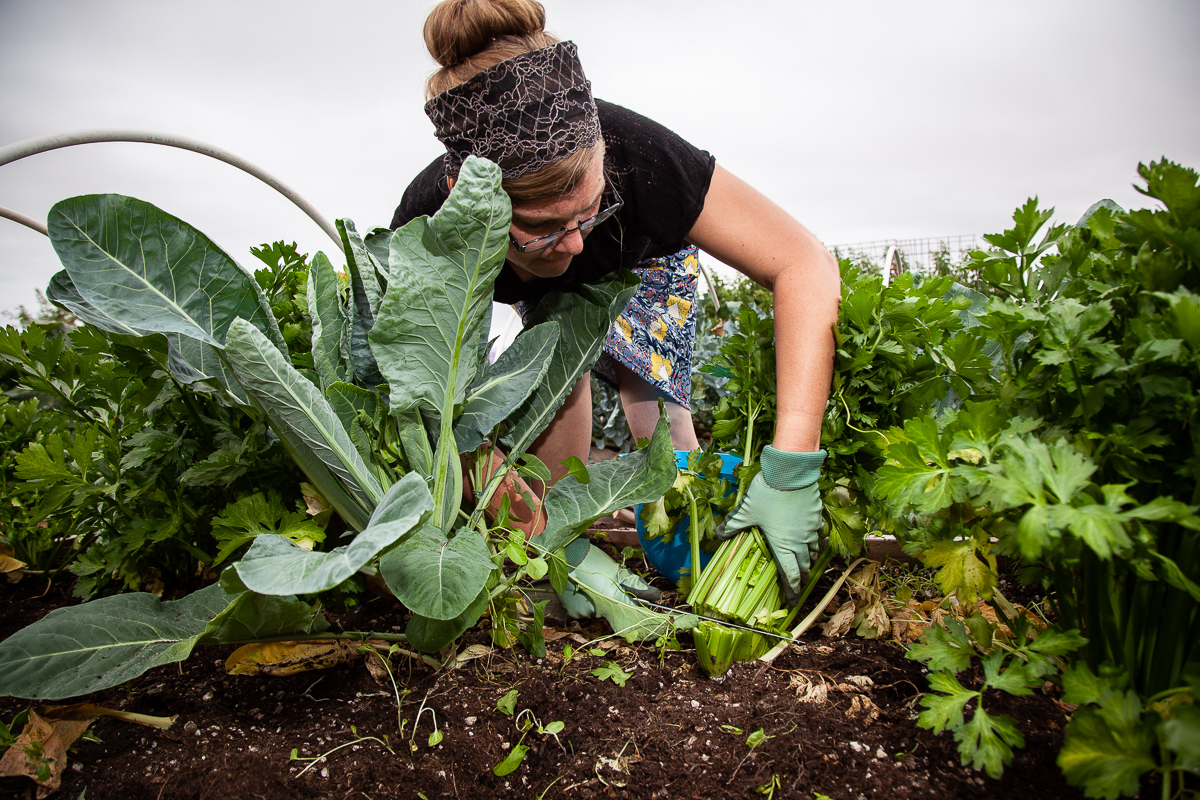
Harvesting Celery
This is an easy crop to harvest. Greta and her crew pull the plant and roots from the ground, shake off the dirt, and trim the bottom roots off. Those roots go into a compost pile, and the celery goes into the house to eat later.
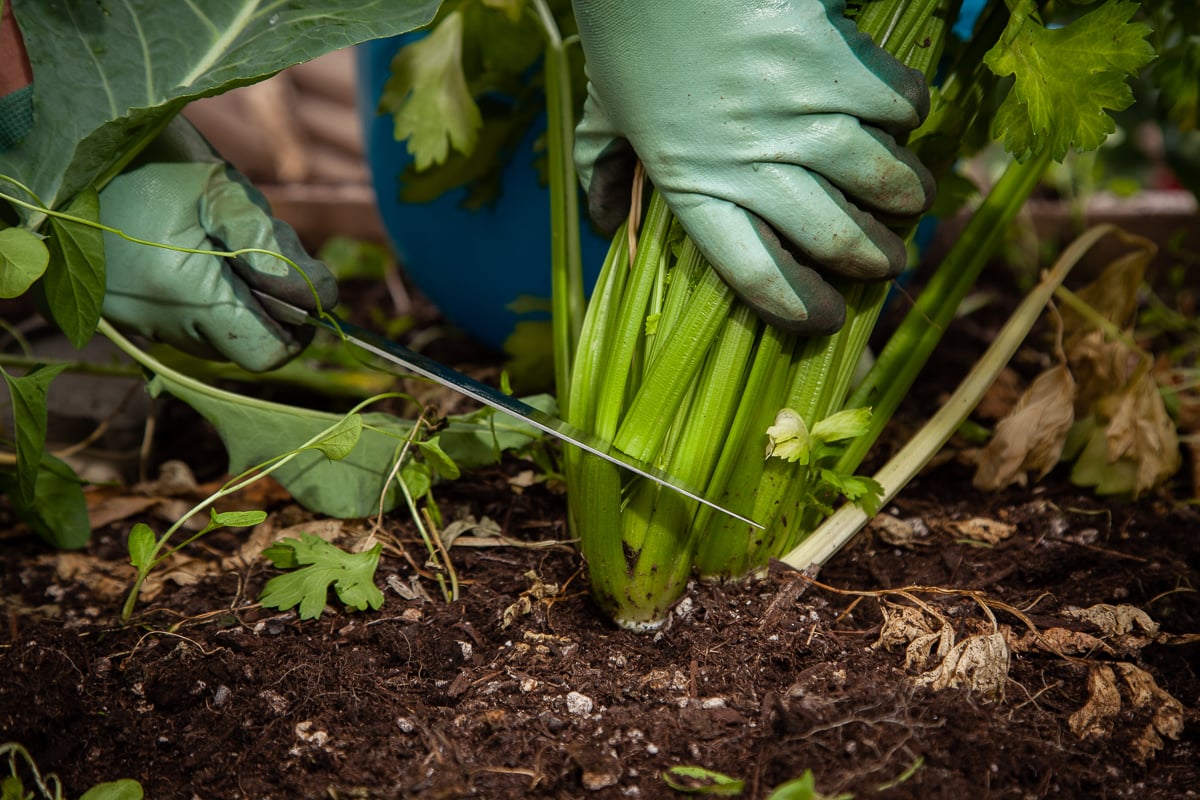
Coastal is Your Year-Round Garden Headquarters
Whatever it is you need for your garden, you’ll find it at your Northwest owned and operated Coastal. That includes folks who know a thing or two about growing, harvesting, and what to expect from gardens in your region. Stop by today and get everything the country needs.
